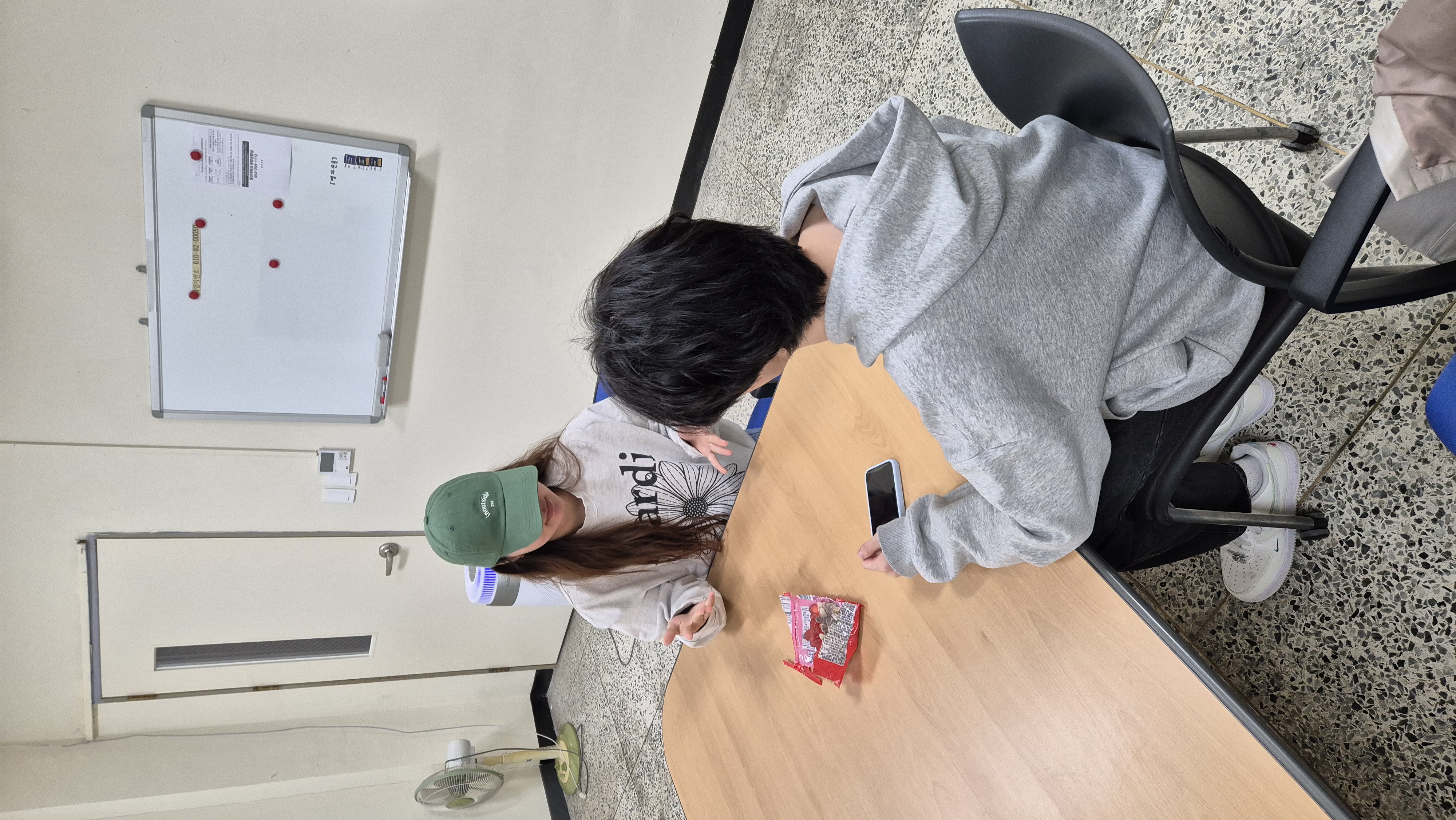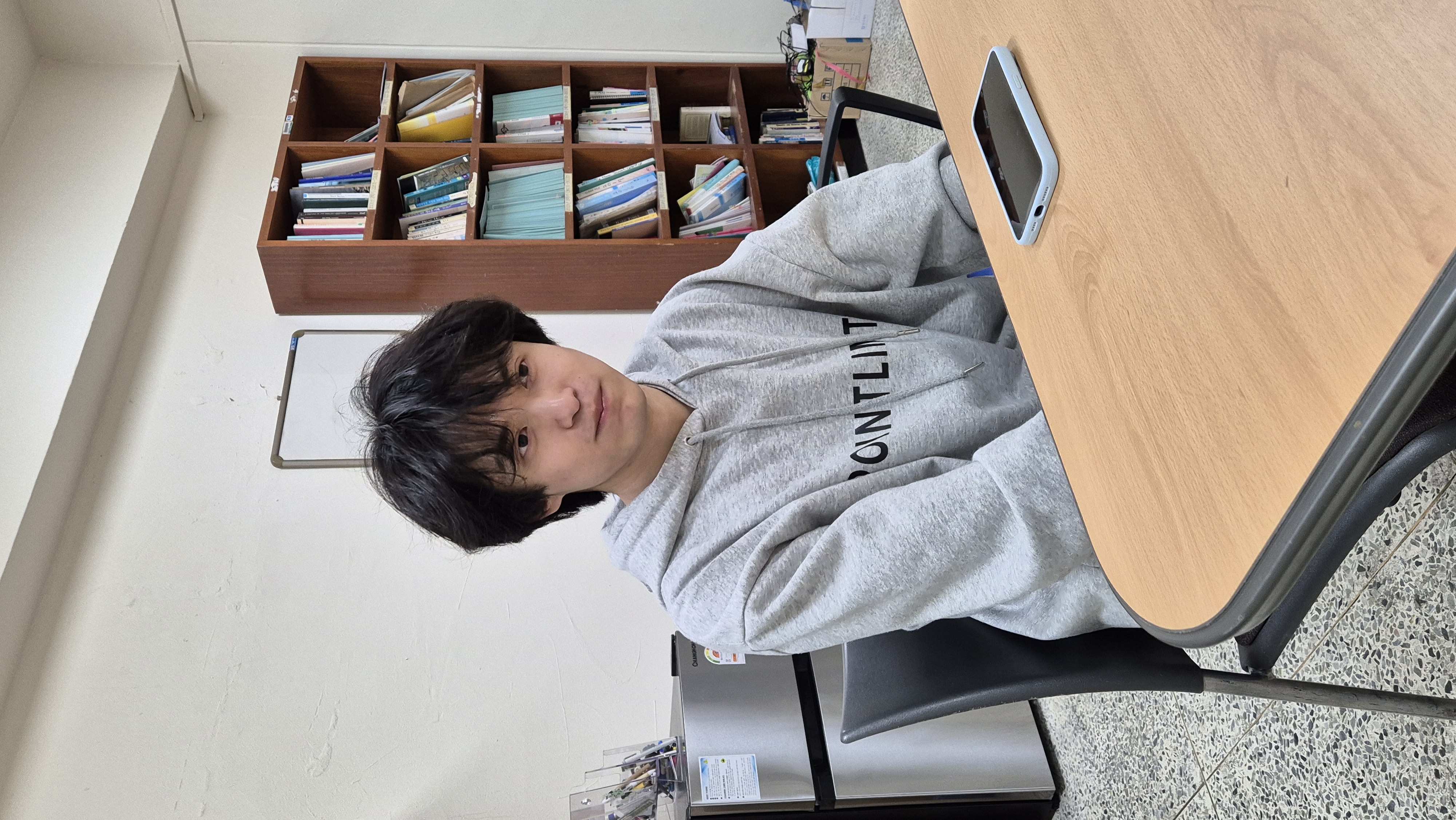| Interview with a Chinese international student | |||||
| 작성자 | Kim Eunseo Reporter | 작성일 | 2024-05-17 | 조회수 | 187 |
|---|---|---|---|---|---|
|
Have you ever seen international students while taking classes or walking around the streets on campus? At the University of Ulsan, you can see not only Korean students but also many international students from various nationalities. Today, I met and interviewed Deokseong Lee, a Chinese student studying abroad at the University of Ulsan.
▲ Interview with Deokseong Lee, a Chinese international student (the source is from Kim Eunseo Reporter) ▶Q: Hello. Do you mind if I ask you to introduce yourself?
▶Q: Is there a special reason why you chose Ulsan out of the many regions in Korea? ▶Q: Are there any conditions necessary to become an international student in Korea? ▶Q: I heard that Hangul is an easy language to learn. Did you actually feel that way while studying Korean? ▶A: Yes, of course. Hangul is easy, so it wasn't difficult to read and speak the letters. However, the long sentences and grammar were difficult. ▶Q: I think that grammar is difficult no matter what language you learn. Of course, you learned Korean in China, but I think it may be difficult to understand university lectures with a lot of technical terms. How do you study? ▶Q: Are there any activities for international students other than classes at the university? ▶Q: Do you interact a lot with Korean students? ▶Q: Are there any inconveniences in your life? ▶Q: I think you would be very lonely if you had to spend several months alone. How do you deal with this loneliness? ▶A: I travel with my roommates. Recently, I went to Seoul and Busan. ▶Q: Did you experience any inconveniences when reserving train tickets? ▶A: The train reservation site supports Chinese, so I was able to easily reserve the train. ▶Q: You seem to be very close with your roommates ▶Q: Malatang and Tanghulu are popular in Korea right now. So, a lot of new menu items called Mala Tteokbokki are coming out. Do people eat Malatang and Tanghulu a lot in China? ▶Q: Thank you very much for the interview. Do you have any advice for international students? So far, I have listened to an interview with a Chinese student studying abroad. While interviewing this international student, I found it interesting to hear stories about university life from the international student's perspective, and I was proud and entertained that I felt like I got a little closer to the international students through this opportunity. I also had a small wish that there would be time for international and Korean students to interact. I hope that this interview will answer some of the questions international students may have. |
|||||



